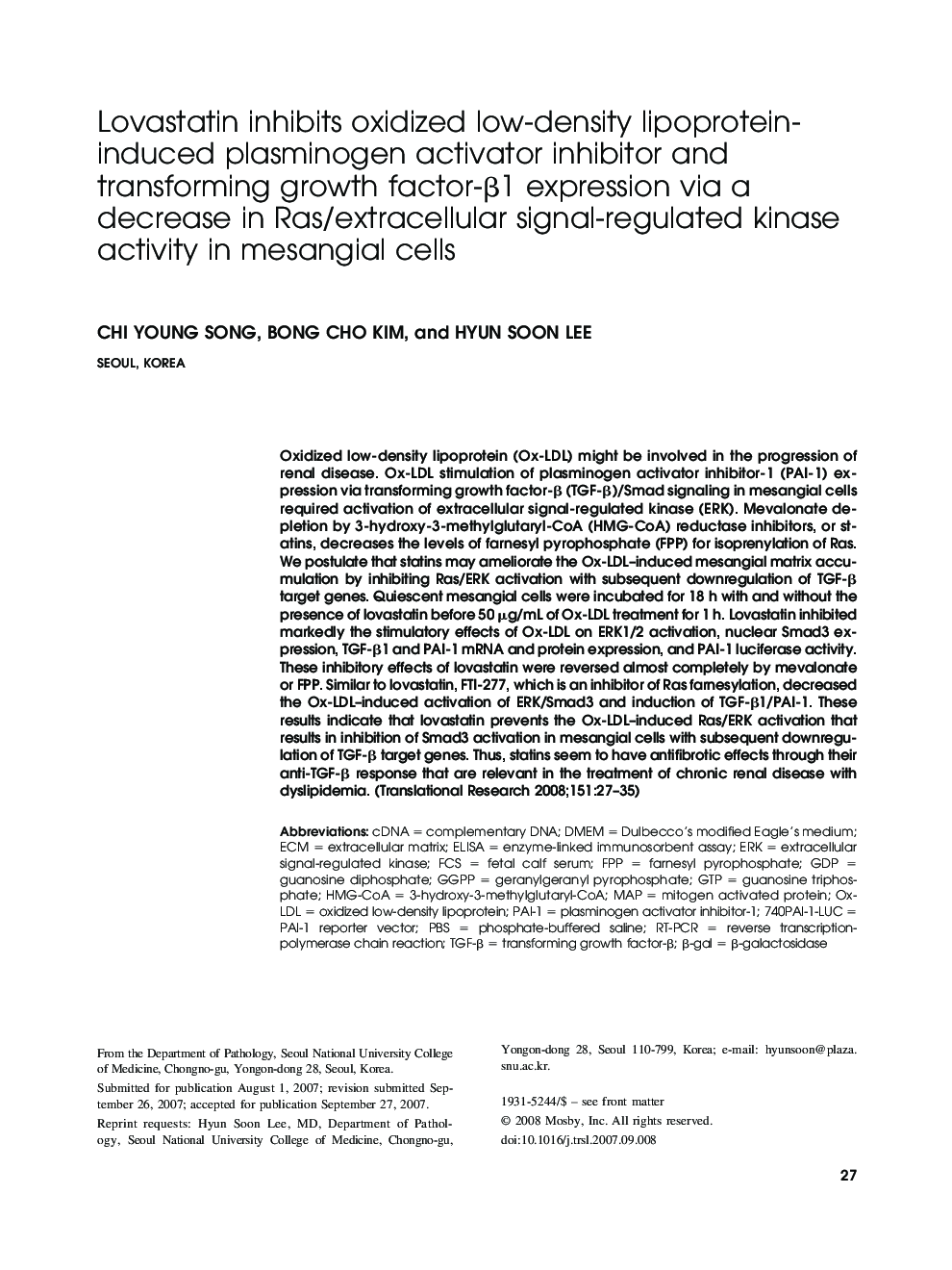| کد مقاله | کد نشریه | سال انتشار | مقاله انگلیسی | نسخه تمام متن |
|---|---|---|---|---|
| 3841413 | 1247978 | 2008 | 9 صفحه PDF | دانلود رایگان |

Oxidized low-density lipoprotein (Ox-LDL) might be involved in the progression of renal disease. Ox-LDL stimulation of plasminogen activator inhibitor-1 (PAI-1) expression via transforming growth factor-β (TGF-β)/Smad signaling in mesangial cells required activation of extracellular signal-regulated kinase (ERK). Mevalonate depletion by 3-hydroxy-3-methylglutaryl-CoA (HMG-CoA) reductase inhibitors, or statins, decreases the levels of farnesyl pyrophosphate (FPP) for isoprenylation of Ras. We postulate that statins may ameliorate the Ox-LDL–induced mesangial matrix accumulation by inhibiting Ras/ERK activation with subsequent downregulation of TGF-β target genes. Quiescent mesangial cells were incubated for 18 h with and without the presence of lovastatin before 50 μg/mL of Ox-LDL treatment for 1 h. Lovastatin inhibited markedly the stimulatory effects of Ox-LDL on ERK1/2 activation, nuclear Smad3 expression, TGF-β1 and PAI-1 mRNA and protein expression, and PAI-1 luciferase activity. These inhibitory effects of lovastatin were reversed almost completely by mevalonate or FPP. Similar to lovastatin, FTI-277, which is an inhibitor of Ras farnesylation, decreased the Ox-LDL–induced activation of ERK/Smad3 and induction of TGF-β1/PAI-1. These results indicate that lovastatin prevents the Ox-LDL–induced Ras/ERK activation that results in inhibition of Smad3 activation in mesangial cells with subsequent downregulation of TGF-β target genes. Thus, statins seem to have antifibrotic effects through their anti-TGF-β response that are relevant in the treatment of chronic renal disease with dyslipidemia.
Journal: Translational Research - Volume 151, Issue 1, January 2008, Pages 27–35